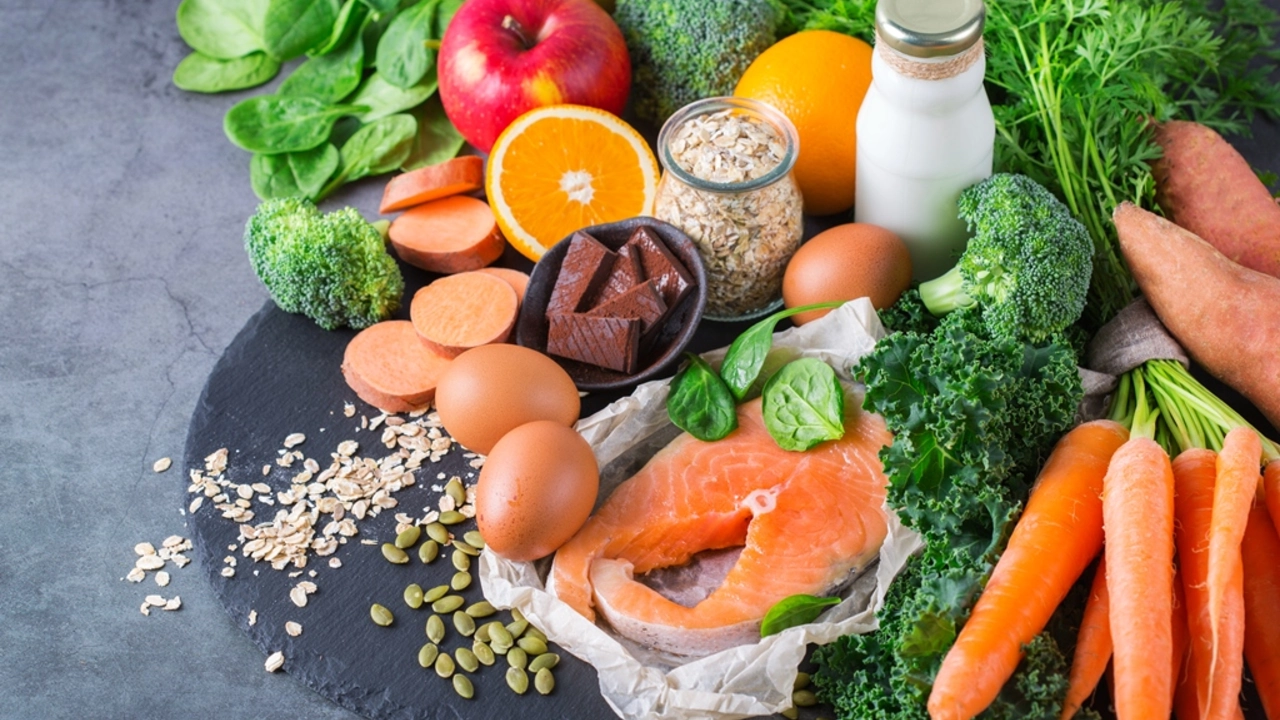Beta-carotene: what it does and how to use it safely
Beta-carotene is a plant pigment that your body can turn into vitamin A. You find it in orange and dark green foods like carrots, sweet potatoes, spinach and kale. It acts as an antioxidant and supports vision, skin, and immune function when you get it from food.
If you want quick wins, add a carrot or half a sweet potato to a meal and toss in a little oil. Beta-carotene is fat-soluble, so a teaspoon of olive oil or some avocado helps your body absorb it better.
Top food sources and how to eat them
Best sources: carrots, sweet potatoes, butternut squash, pumpkin, spinach, kale, collard greens, apricots and mango. Cooked or mashed vegetables often give more available beta-carotene than raw ones. For example, roasted sweet potato or sautéed spinach will deliver more usable carotenoids than eating them plain. Smoothies with a splash of oil or nut butter also boost absorption.
Supplements: when they help and when they can harm
Supplements can raise blood levels fast, but they aren’t always needed. If you eat a varied diet full of colorful vegetables and fruits, you’re probably covered. Consider a supplement if a doctor finds low vitamin A or if a medical condition affects absorption.
Watch out if you smoke or used to smoke. Large trials (ATBC and CARET) tested high-dose beta-carotene supplements in smokers and found a higher risk of lung cancer when people took about 20–30 mg daily. Because of that, avoid high-dose beta-carotene pills if you smoke or have a heavy smoking history.
Side effects are usually mild: carotenodermia (yellowing of the skin) can happen with high intake from food or supplements and is harmless. Beta-carotene doesn’t cause vitamin A toxicity the way preformed vitamin A can, but check labels if a product mixes beta-carotene with retinol or high doses of preformed vitamin A.
Choosing a supplement: pick one from a trusted brand and look for third-party testing (USP, NSF, or ConsumerLab). Start low—many supplements offer 2–6 mg per dose. Talk to your doctor before taking anything higher, especially if you smoke, are pregnant, or take other vitamins and medications.
Practical daily plan: aim for at least one serving of orange or dark-green vegetables each day, cook some of it, and add a small amount of healthy fat. If you rely on a pill, keep doses modest and check with your healthcare provider.
Want to check your levels? Ask your doctor. Routine testing for beta-carotene isn’t common, but if you have absorption issues, they may run a vitamin A panel or guide you on supplementation safely.
 31 Jul 2023
31 Jul 2023
Well, folks, let's talk about beta-carotene, the superhero of the supplement world. This powerhouse nutrient runs laps around the competition, leaving other supplements in its dust. Why, you ask? Well, beta-carotene is a pro at supporting our immune system, protecting our eyesight, and even helping our skin look fabulous. So, next time you're pondering which supplement to pick, remember, beta-carotene is the Usain Bolt of nutrients!
View More

